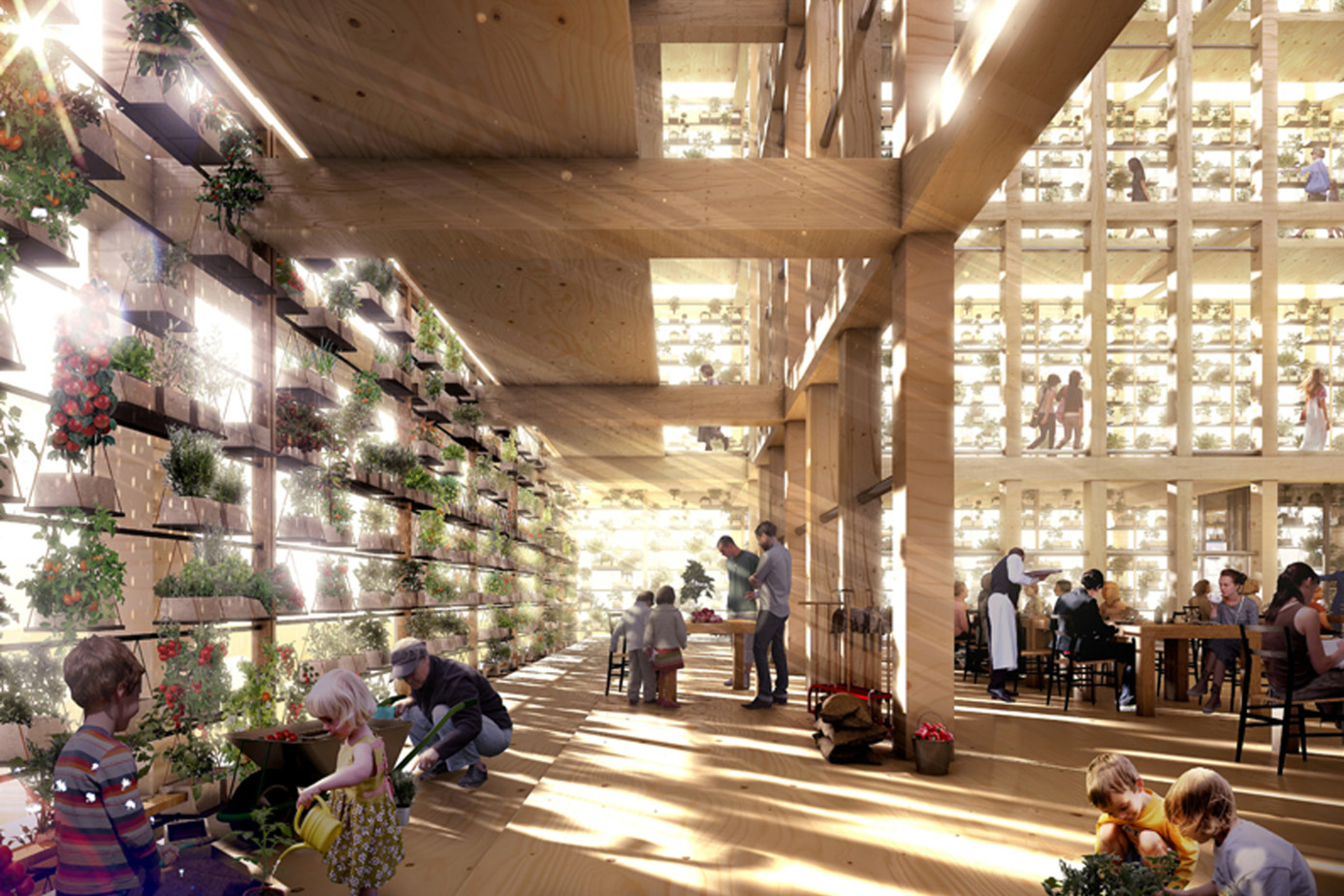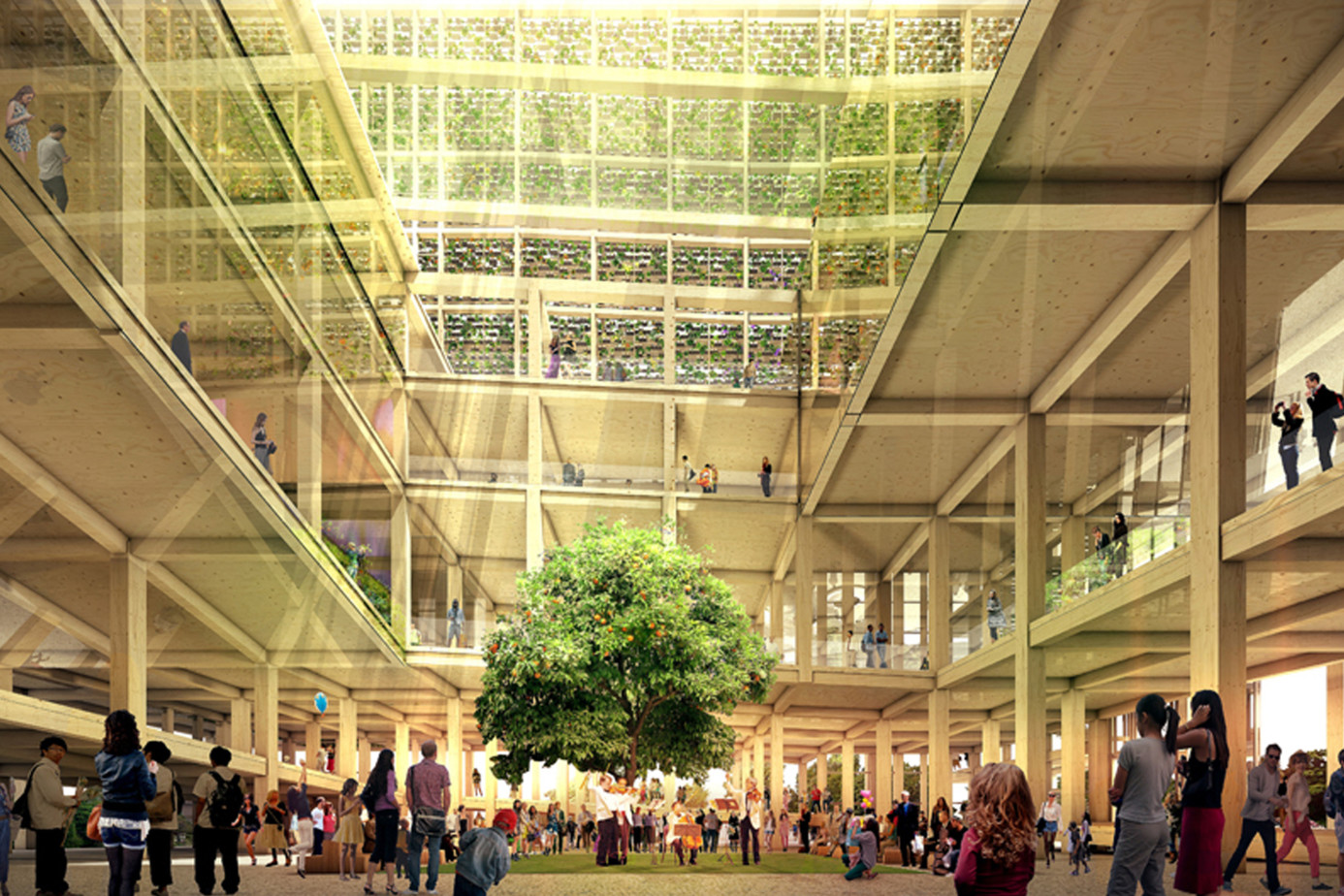Expo Milano 2015 - 'Lands-Scapes'
“The world is living on credit. According to the calculation of the ecological imprint of the world’s population made by the non-governmental organization the WWF, we need the equivalent of one planet and a half to support human activity at its current rate. Following today’s trajectory of overconsumption of resources, two planets shall be necessary by 2030”.
We are aware that today every act of construction fosters new spaces of consumption. Instead we propose a place driven by renewable energy, renewable lives, one where the micro regenerates the macro level. Places of interacting individuals, of consciousness. A structure for life, an ‘Architected’ balanced tree with the beauty of the lives it holds: the array of colours of its planted species, and the diversity of individuals cherishing their differences compose this ‘Architecture’ of the place.
Padiglione Italia is a green micro power plant drawing on the energy that courses through the biosphere: the sun, the wind, the heat under ground, waste and plants. A ‘Tree’ fed by renewable energy devices, with waste reimagined into the circle of systems for renewable life. But above all, people and their actions become the core participants in their new sustainable ‘Landscape’. They are ‘Energy Generators’: the simple action of taking a lift, or using a smartphone can make a difference and generate energy for the structure. Beyond this even, we are ‘Nutriment Generators’ for ourselves and for others: every act of consumption is compensated with an act of planting on the structure’s spaces. The different scales of public space foster innovation and allow people to be ‘Ideas Generators’.
Padiglione Italia is a showcase for both traditional craftmanships and exciting innovations, Italian and international. It is a beacon for the third industrial revolution, generating jobs linked to renewable technology and architecture. It is a depature for a new infrastructure and economic paradigm.
Padiglione Italia is beautifully alive and dependent on each one of us, much like our planet.
[…] [×]







